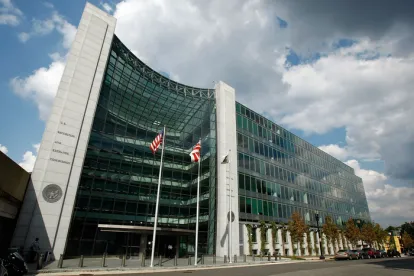On March 8, 2021, the Depository Trust Company (“DTC”), the Fixed Income Clearing Corporation (“FICC”), and the National Securities Clearing Corporation (“NSCC”) (each a “Clearing Agency” and collectively the “Clearing Agencies”) filed with the U.S. Securities and Exchange Commission (“SEC”) a proposal to amend the investment policy for each Clearing Agency. The Clearing Agencies investment policy is regulated by the SEC pursuant to Rule 19-4 adopted under Section 19(b)(1) of the Securities Exchange Act of 1934, as amended. The proposal was published in the Federal Register on March 16, 2021. No comments were received, so on April 16, 2021, the SEC approved the proposed policy change.
Proposed Rule Change to Clearing Agency Investment Policy
Clearing agencies (not the defined term) are financial service entities that undertake a variety of services as “middle persons” in the trading of securities. They serve as central counterparties (“CCP’s”) in transactions AND as central securities depositories (“CSD”). Some seven clearing agencies are registered with the SEC and at least another five are not registered, as they have been granted exemptions from registration by the SEC. The concept of clearing agencies arose in the late 1960s as Wall Street “choked” on the back office problems of the major firms, where records were kept in pen and paper and stock transfers were affected by the exchange of physical certificates. As trading volume surged (from 5 million shares) to 15 million shares in 1968, the “back office” mess became unsupportable.
In 1968, the New York Stock Exchange established the “Central Certificate Service” to replace physical certificate exchange for electronic, centralized records. This transformation saved the Wall Street firms from choking on their own paperwork. By 1973, the Depository Trust Company had been created to allow “book-entry” changes. Now, it settles some 10 trillion transactions in securities each year from all over the world, including American Depository Receipts, stocks, and bonds. In 1976, the NSCC was established to clear, settle, and police almost all broker-to-broker trades. Finally, FICC, created in 2003, provides clearing for fixed income securities including corporate issues, Treasuries, and mortgage-backed securities.
In 1999, the Depository Trust & Transfer Corporation (“DTTC”) was established as a holding company for each of the three Clearing Agencies. DTTC settles the vast majority of all securities transactions in the United States and many of those transactions throughout the rest of the world. At the same time, the FICC has a Government Securities Division (“GSD”) whose regulatory positions are not necessarily congruent with those of the FICC. The FICC has long sought to bring its regulations into harmony with those of the GSD.
Tightening the Reins
Now, as part of an effort to reduce risk and also to increase regulatory harmony, the Closing Agencies proposed amendments to their Investment Policy. The SEC Release notes that the Investment Policy “would adhere to a conservative investment philosophy, that places the highest priority on maximizing liquidity and avoiding risk.” The Policy is derived from the 2016 investment “Framework.” The Policy focuses primarily on bank deposits, which until this proposal had been based on the “bank deposit investment limits …determined based on the bank’s counterparty’s external credit rating.” The new proposal would also include “a consideration of the size of the bank counterparty, measured as the total shareholders’ equity capital.” Under the new methodology, the investment limit for a bank deposit is to take into account the counterparty’s credit rating AND be the lower of a percentage of total shareholders’ equity capital OR the applicable dollar value as determined under the Investment Policy. This change takes “into account the size of a counterparty in setting investment limits.”
This new limit “would help the Clearing Agencies … cap their exposure to smaller counterparties, measured by their shareholder equity capital.” Accordingly, the SEC expressed its belief that the proposed changes:
…are reasonably designed to help safeguard the Clearing Agencies’ own and their participants’ assets in instruments with minimal credit, market, and liquidity risks.
And so the reins on this thoroughbred remains “unsettled,” but Derby Day is coming, and Essential Quality may prevail over Hot Rod Charlie.



 />i
/>i

